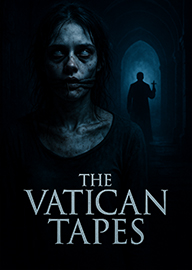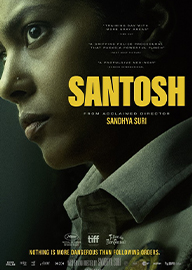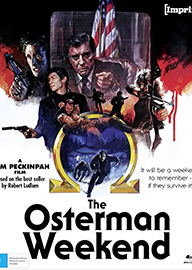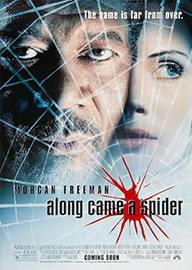말아톤 AKA Marathon
- 7.7
- Sport
- 2005
- 1h 55m
- 14+
a heartwarming South Korean drama based on the true story of a young man with autism who dreams of becoming a marathon runner. The film follows his emotional and inspiring journey as he trains for a marathon, overcoming obstacles, societal challenges, and personal limitations. With powerful performances and a moving narrative, Marathon explores themes of perseverance, acceptance, and the human spirit. It celebrates the power of determination and the bond between a mother and her son, leaving a lasting impression on audiences.













Comments
0Reviews
0Summery
1Please sign in to comment.
Please sign in to review.
Marathon (2005) is a powerful South Korean film that beautifully captures the journey of overcoming personal and physical limitations, told through the inspiring story of a young man named Cho-won, who has autism and dreams of completing a marathon. Directed by Jung Young-bae, the film stands as a testament to resilience, perseverance, and the transformative power of love and support. It highlights not just the literal race that Cho-won enters, but also the emotional and psychological marathon that he must overcome in order to find his place in a world that often feels indifferent and incomprehensible to him. With a heartwarming storyline and brilliant performances, Marathon succeeds in portraying the challenges and victories of a person living with autism, all while promoting understanding, empathy, and acceptance.
The central character, Cho-won, played by actor Cho Seung-woo, is a young man with autism who has a unique fascination with running, particularly with the idea of completing a marathon. Throughout his life, Cho-won has faced significant challenges, both socially and mentally, and has always been somewhat disconnected from the world around him. His passion for running, however, becomes a way for him to not only communicate his desires but also push beyond the boundaries that his condition has set for him. His journey to complete a marathon is not just about physical endurance, but also about overcoming internal struggles and proving to himself and others that he is capable of more than what is typically expected of him.
The film delves deep into the relationship between Cho-won and his mother, played by actress Kim Mi-sook, whose love and dedication to her son are central to the narrative. Her unwavering support and belief in Cho-won’s potential are what ultimately motivate him to begin training for the marathon, despite the skepticism of those around them. Cho-won's mother is a pillar of strength and love, sacrificing much of her own life to help her son pursue his dreams, even when faced with doubt and resistance from both the medical community and society. Her tireless commitment is reflected in the emotional moments throughout the film, where we see her struggles, her fears, and her hopes for her son, making their bond the emotional core of the story.
As the film progresses, Cho-won's determination to run the marathon intensifies, but it becomes clear that his journey will not be without obstacles. He must not only deal with the physical demands of training but also navigate the social and psychological challenges that come with autism. The marathon becomes a metaphor for Cho-won’s internal journey—his struggle to connect with others, his desire for independence, and his determination to prove that he is capable of achieving great things despite the limitations imposed on him by his condition. The narrative cleverly weaves in elements of Cho-won’s personal growth, showing his evolving relationship with his mother, as well as the people around him who begin to see him not just as a person with autism but as an individual with dreams and potential.
One of the most compelling aspects of Marathon is its portrayal of autism and how the condition is understood in society. The film doesn’t shy away from showing the struggles that individuals with autism face, but it also emphasizes their potential and the unique strengths that come with their way of thinking and perceiving the world. Cho-won’s character is depicted with great sensitivity and depth, avoiding the stereotypical portrayals often seen in media. Instead of focusing on his limitations, the film highlights his passions, intelligence, and determination, encouraging viewers to see beyond the surface and to understand the complexities of his character.
The film's pacing is steady, allowing the audience to immerse themselves in Cho-won's emotional journey, while also balancing moments of lightheartedness with the serious themes of the story. The scenes depicting Cho-won's training and his relationship with his mother are particularly touching, showing their evolving dynamic as Cho-won grows more independent and gains confidence in his abilities. There are moments of tension, such as when Cho-won faces setbacks in his training, but these are balanced with moments of triumph, highlighting the emotional highs and lows of his journey. The film also delves into the societal perceptions of disability, showing how Cho-won’s achievements challenge these preconceived notions and inspire those around him to reconsider their beliefs about what people with disabilities are capable of.
Another standout aspect of Marathon is its cinematography, which effectively conveys the emotional weight of the story. The scenes of Cho-won running are both visually striking and symbolic, representing not only his physical struggle but also his emotional battle. The filmmakers use running as a metaphor for life’s challenges, depicting Cho-won’s progress as a series of small but significant steps towards personal growth and self-acceptance. The use of wide shots during his training sessions and the marathon itself helps to emphasize his solitude and his determination, while close-up shots allow the audience to connect more deeply with his emotions and inner world. This visual storytelling adds depth to the narrative, making Cho-won’s journey feel both intimate and universal.
In addition to its emotional and narrative strength, Marathon features a memorable and heartwarming musical score that complements the film’s tone perfectly. The music enhances the emotional moments, helping to underscore the significance of Cho-won’s achievements and the tender moments between him and his mother. The soundtrack is both uplifting and poignant, aligning with the film’s themes of hope, perseverance, and the power of familial love. The music serves to amplify the emotional impact of the story, making the viewer’s connection to the characters even more profound.
Marathon is a deeply moving film that not only tells the inspiring story of one man's quest to achieve his dreams but also raises important questions about society’s treatment of people with disabilities. It challenges viewers to rethink their perceptions of individuals with autism, reminding them that everyone, regardless of their condition, has the capacity to achieve greatness with the right support and determination. The film’s themes of love, sacrifice, perseverance, and self-discovery are universally relatable, making it a poignant and inspiring watch for audiences of all backgrounds. Through Cho-won’s journey, the film emphasizes the importance of never giving up, no matter how insurmountable the challenges may seem, and the profound impact that unconditional love and belief in oneself can have on achieving the impossible.
In conclusion, Marathon (2005) is a film that resonates on multiple levels. It is a story of perseverance, self-discovery, and the unwavering bond between mother and son. The film’s portrayal of autism is both sensitive and empowering, offering a refreshing perspective that emphasizes the potential and humanity of individuals with disabilities. Through its compelling narrative, emotional depth, and powerful performances, Marathon proves to be an inspiring film that encourages viewers to reflect on their own lives and the power of determination, compassion, and support. It’s a reminder that every journey, no matter how difficult, is worth pursuing, and that true success lies not in crossing the finish line but in the courage to keep running.